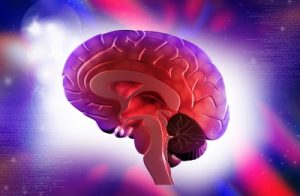Structural Brain Changes Can Be Reversed In Anorexia Patients Who Recover
 One of the many devastating effects of anorexia is changes in brain volume and structure, which can impact cognitive functioning, memory, and mood.
One of the many devastating effects of anorexia is changes in brain volume and structure, which can impact cognitive functioning, memory, and mood.
Yet researchers from the Translational Development Neuroscience Lab discovered these structural changes can be “completely reversed” in patients who successfully recover from the disorder and maintain a healthy weight.
While previous studies on the topic haven’t been able to pinpoint specifically how the brain can deteriorate with anorexia, the new research suggests that patients with the condition have thinning cortical gray matter in the brain.
Long-term weight rehabilitation
Participants in the study were given MRI scans immediately after admission to specialized eating disorder clinics and also after completion of successful therapy and weight normalization.
“We observed complete normalization of cortical gray matter thickness in the long-term weight rehabilitated patients in our sample,” said Professor Stefan Ehrlich, study leader, “which is a particularly encouraging finding for those suffering from the disorder.”
While the findings suggests the brain may be resilient in anorexia patients, other consequences – like compromised bone mass – may not be reversible.
The study is published in Biological Psychiatry.
Source: Psy Post
Image courtesy of dream designs/FreeDigitalPhotos.net
 Eating Disorder Self Test. Take the EAT-26 self test to see if you might have eating disorder symptoms that might require professional evaluation. All answers are confidential.
Eating Disorder Self Test. Take the EAT-26 self test to see if you might have eating disorder symptoms that might require professional evaluation. All answers are confidential.